Hello, could you please describe in more detail the symptoms of CKD.Because the symptoms you listed are observed in my cat.Thanks in advance
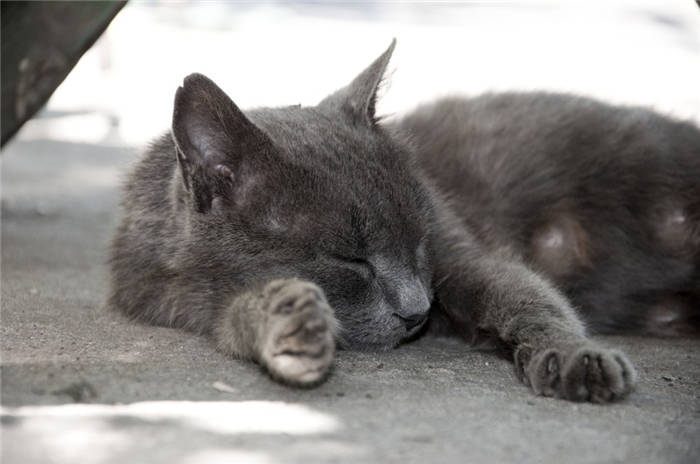
- Cat has a rumbling in the stomach.
- Reasons for purring and rumbling
- Treatment
- Worm infestations.
- Foodstuffs
- Why is the cat's stomach bubbling?
- Signs to look out for
- Possible causes related to the gastrointestinal tract
- Calming treatments and interventions
- 12 reasons why a cat's stomach rumbles
- Digestion
- Hunger
- Why cats have rumbling stomachs: conclusions
- You'll also be interested in:
- The stomach is bubbling and vomiting has opened
- Stomach rumbling and disturbed stools
- Relationship between thirst and tummy rumbling
- Meteorism
- Foods – healthy and not too
Cat has a rumbling in the stomach.
My cat is 13 years old. Some time ago, at a show, they said she was an Angora breed but in fact she was just a normal yard cat. Had jaundice when she was 6 or 7 and had a spay and tumor removed on her mammary gland last August. The doctor, when they did the surgery was surprised that the cat at his 13 years does not look very, teeth are fine, liver and kidneys too. The surgery was well tolerated, the cat could walk immediately after coming home, though she felt shaky and even managed to go to the toilet – toileting and mewing, obviously she was frightened. The next day she was fine, antibiotics were taken, stitches were removed, everything seems fine.
Now the essence of my concerns. Recently I accidentally put my ear to my stomach, and heard something there occasionally gurgling and rumbling. The cat eats quite strangely, a little at a time, but comes to the bowl almost every hour (after surgery gained about 1 kg). Before going to the toilet, she meows, quite loudly, I don't know why. During the act itself, she never makes a sound. Stools are normal, not dry or liquid, she goes poop 1-2 times a day, go poop more often, I don't always pay attention. In the morning and evening, stable rushes on the ceiling and furniture, during the day mostly sleeps, sometimes in the morning meows for half a minute and then back to sleep, sometimes it happens in the afternoon.
I created this thread only in terms of advice, is it worth examining the cat, or is it a futile concern?
I am not a doctor.
In my experience, rumbling in the stomach is a symptom of gastritis. The fact that she screams before going to the bathroom is not good either. Apparently, there is some kind of discomfort. All in all, the impression is that there are some problems with the gastrointestinal tract.
What do you feed your cat?
We feed dry food Royal Canin, soft whiskas, from time to time we give kefir, jam, etc., quite rarely raw meat in small quantities, chicken, beef (very much asks, looks straight into the eyes and sits under his feet). Sometimes cooked meat, broths.
In general, the thought occurred to me that in her life she has never had diarrhea, vomiting as a standard 1 time a month or 2 months, I understand this cleansing.
And in general, she has a terrible chatterbox, but also, she usually starts to freak out before the toilet, well, as if trombovyvaet inside something. That's not understand, whether it's just a warning about his trip to the toilet, or something bothers me.
Thought I'd try not to feed her half a day at least, maybe she rumbles because she eats all the time. This morning I listened, almost no rumbling, 1 time in 10-15 seconds, and then so quietly that the purring is not heard almost. In general, I am in doubt.
Reasons for purring and rumbling
Increased gas causes serious discomfort in animals. Its causes can be simple, such as a change of food or switching from natural food to artificial food, mixed feeding.
Young kittens often develop dyspepsia if the kitty eats artificial food and drinks mom's milk. Kittens may have dyspepsia if they have a congenital lactose intolerance. Such kittens need a special diet. Otherwise they will die.
Quite often a cat develops dyspepsia even when feeding him quality food of well-known brands, because these foods are full of preservatives and fiber, and dry food is full of dehumidifiers and flavorings.
Unfortunately, dyspepsia caused by such foods is not the worst thing for a pet.
Very serious illnesses can also be the cause of active stomach churning.
The cause of rumbling and bubbling in the digestive system of the cat can be serious diseases of the organs involved in digestion, bacterial intestinal infections and severe viral diseases of the cat.
Inflammation of the pancreas often leads to enzymatic insufficiency and, as a result, to fermentative dyspepsia. If the animal has disturbed stools, vomiting, nausea, refusal to eat – this may be a manifestation of pancreatitis.
If the animal has bloated abdomen, purulent rhinitis and conjunctivitis, high temperature and general weakness, it is bothered by flatulence accompanied by severe rumbling in the abdomen, it may have a severe viral infection (Calcivirus or rhinotracheitis) for the cat.
Gastric and duodenal ulcers, gastritis, colitis, enteritis, intestinal dyskinesia – all these diseases may be accompanied by purring, because the process of digestion of lumps of food and promotion of feces is disturbed. Usually these diseases are accompanied by an upset stool and other unpleasant symptoms for the animal.
Inflammatory processes in the mucosa of the gastrointestinal tract, digestive disorders, rumbling can be caused by some medications (anti-inflammatory, hormones and others).
Treatment
If the only manifestation of dyspepsia is a loud rumbling in the course of the intestine in the animal, it should:
- keep him away from stress;
- Feed in small portions, but more often, in a specially designated place, where the animal will not be disturbed;
- The food should be chosen appropriately, you can consult a specialist;
- If the animal eats artificial food, it is desirable not to pamper him with tasty things from his own table, "human" food often provokes dyspepsia;
- litter garbage cans should be kept out of the pet's reach.
If this strategy is not successful, or if additional alarming symptoms appear, you should definitely show the cat to a veterinarian.
Worm infestations.
Mild forms may not be noticed, but severe ones are easily diagnosed by a number of symptoms:
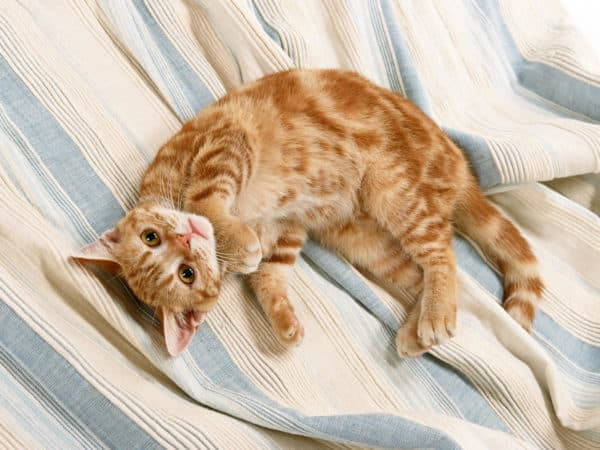
- A bloated, pear-shaped abdomen;
- Yellow-green color of feces;
- excessive thinness;
- frequent diarrhea.
Worms eat food faster than it has time to digest. In the process of life, parasites release large amounts of gases and toxins, which provoke active burbling.
Treatment methods. In the presence of this problem, the animal must necessarily be treated. A veterinarian or a specialist at an animal pharmacy will help determine the best way to treat it. To date, many dosage forms are available:
- suspensions or pastes – They usually come with a syringe so you can draw out the desired amount and squirt it in his cheek;
- drops – they are intended for external use to control fleas, which can significantly worsen the quality of life of the pet;
- tablets – concentrate for the preparation of a therapeutic solution, in pure form it is difficult to make the cat swallow them (read more about how to give a cat a tablet for worms).
All of these remedies provide fast and complete elimination of parasites. Which type of medication to choose depends on the individual characteristics of the pet.
After treatment, you need to ensure that the cat does not come into contact with stray animals.
Foodstuffs
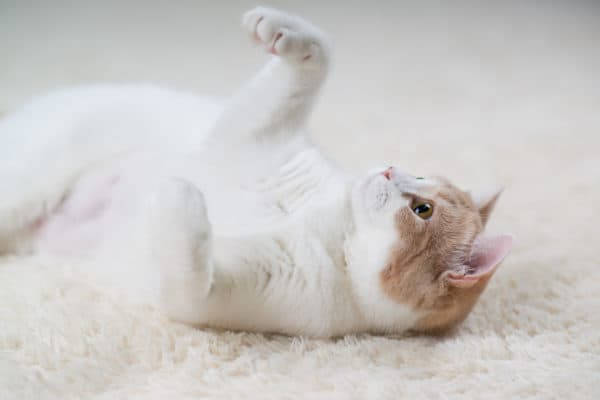
- Milk. One of the most controversial points among pet owners is the consumption of milk. Some are of the opinion that it is completely unnecessary for adult animals and can only do harm. Others believe that it is exactly the opposite. Therefore, it is up to the owner to decide, taking into account the pet's attitude toward milk, the overall reaction of the body. If this product was previously consumed regularly, you can try temporarily eliminating it from the menu. If the rumbling problem resolves itself, the cause will be obvious.
- Water. Excessively cold liquids irritate the walls of the stomach and intestines. Therefore, it is unacceptable to pour water from the tap and give it immediately to the pet. It should be filled in advance into a clean container and allow time to warm up and stand. In many cities, water is chlorinated to prevent the risk of spreading dangerous infections. But long retention and heating to room temperature allows the chlorine to evaporate successfully. Chlorine is a gas in its structure. During the interaction, atomic oxygen is released from the water molecule to form a small amount of hydrochloric acid. This substance, unlike ordinary oxygen, is very active in killing harmful bacteria.
Eliminating all of the above causes and triggering factors will normalize your pet's condition and prevent possible future problems. If nothing helps, then the way to solve the problems is to go to an experienced veterinarian.
Why is the cat's stomach bubbling?
When petting a cat, you can often hear an appreciative purr. But every once in a while, a cat's belly gets bubbly. Some people are amused by this sound, while others are alarmed. A loving owner immediately asks himself a question: isn't it a symptom of digestive disease? And what to do if the cat's stomach rumbles?
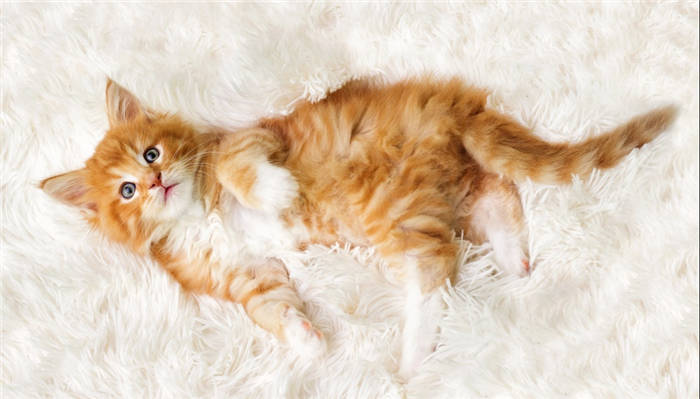
Both humans and cats and dogs have a rumbling stomach from hunger. Once a pet is fed, these noises go away.
Often cats spend entire days alone and become very hungry by evening. Then the owner comes back from work and tries to feed his furry friend. Cats do not always know the measure and often overeat. The animal's digestive system cannot cope with the large amount of food that has arrived in a short period of time. All this can provoke not only rumbling in the abdomen, but also diarrhea. The cat may start vomiting. The intestines and stomach can't digest all the food, and it begins to rot. This can turn into food poisoning, severe indigestion and cause diarrhea in the cat.
Aerophagy means "eating air. If a cat greedily pounces on food, it may gulp down a lot of air along with the food. Some of the air escapes when the cat burps, but some remains and goes down into the intestines. This creates a rumbling sound in the animal's stomach. Aerophagia is often confused with flatulence because of the similarity of the symptoms. But aerophagia is not a threat to the health of the cat, unlike flatulence. You just need to feed your cat in small but frequent portions. In this way, overeating and gulping of air can be avoided.
Stomach rumbling is also due to worms. But in addition to this symptom there will be other symptoms: bloated and pear-shaped abdomen, diarrhea. When worm infestation is neglected, the animal is very thin, the ribs are palpable and the feces are yellow-green in color. Worms eat food faster than the intestines and stomach, leaving behind only gas and toxins in large quantities. It is these gases that cause the stomach to rumble. The animal must be treated immediately or it may die quickly.
Signs to look out for
The first thing that is important to watch for is the general well-being of the animal. If the cat shows no other signs of illness or discomfort, and purring is common after a hearty meal, it should hardly be a cause for concern. You can ask your veterinarian about these sounds at a routine appointment.
However, if a cat with borborygma begins to show signs of illness or discomfort, you should seek immediate help from a veterinary professional. Specific symptoms to look out for:
These important symptoms can be subtle and sometimes difficult to detect, especially in families with multiple cats. In such cases, extra vigilance is always advised. A pet's complete refusal to eat is considered an emergency situation and requires immediate contact with a veterinarian.
Possible causes related to the gastrointestinal tract
Constant purring can be the result of problems with the gastrointestinal tract or another system. Gastrointestinal related causes may include the following:
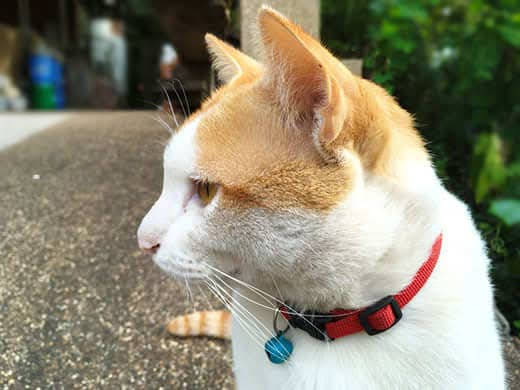
- Ingestion of foreign bodies such as toys, threads, etc.
- Lumps of hair in the stomach.
- Gastric ulcers.
- Gastrointestinal cancer.
- Intestinal irritation caused by parasites or by eating new or spoiled food or even by stress.
In fact, any factor that contributes to a change in the cat's normal intestinal microflora can lead to excessive gas and increased gastrointestinal activity. Consequently – to borborygma.
Calming treatments and interventions
In most cases, no treatment is necessary. However, in any case, it is worth trying one or more simple remedies for upset stomach.
- Probiotics. These colonies of "good" bacteria can help restore the bacterial balance of the gastrointestinal tract.
- Prebiotics. These are nutrients that serve as food for the "good" bacteria, supporting these particular colonies. The most well-known prebiotic is digestible fiber.
- Cat gut flushing products. They can help cats who often have problems with hairballs. That said, regular brushing can be just as effective.
Before embarking on any new course of treatment, the true cause of your pet's health problems should be determined at a face-to-face appointment with your veterinarian
12 reasons why a cat's stomach rumbles
People often make gurgling noises from their stomachs. This may be because we are hungry or digesting food, and cats' stomachs make the same sounds. However, because cats have small stomachs, the sound is much quieter.
A cat's stomach rumbles usually after they have eaten food. If the animal is otherwise behaving normally and shows no signs of discomfort, check for sudden changes in their behavior.
If the cat's stomach is constantly rumbling, it indicates that there is something wrong with his digestion.
Digestion
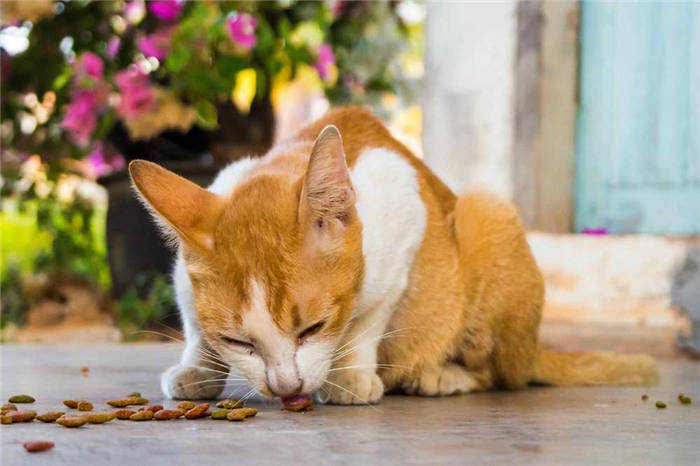
A gurgling sound occurs when food splits and dissolves. This phenomenon is known as borborygmus.
Cats' digestive tracts are relatively simple, so it does not take much effort to digest suitable food. If your cat eats protein-rich food it should be completely digested within a few hours.
Sometimes a cat may have delayed digestion due to age-related factors. However, it is more likely that the mumbling is due to the cat's diet. According to research, cats' bodies are not designed to digest carbohydrates or starches.
Cats don't need these food groups, and they become bloated and lethargic after eating them, and their stomachs gurgle loudly.
Hunger
Are you feeding your cat dinner late? If so, the reason why the cat's stomach rumbles may be due to normal hunger. An empty stomach makes rumbling noises.
Cats will let you know if they are hungry. They will make begging noises and their meows will become increasingly elongated. Cats get nervous and anxious when their feeding regimen is disrupted.
If your cat has eaten but still seems hungry, it may be due to higher energy needs during the cold season. Cats need to eat about 15% more during the winter months compared to summer. You can give your cat more food during the coldest parts of the year, as long as you reduce their portion size in the spring.
Why cats have rumbling stomachs: conclusions
If your cat's stomach is constantly gurgling, it's probably due to hunger, overconsumption, or eating something unpleasant. If the belly rumbling is combined with other physical symptoms, your veterinarian will need to run tests and scans to determine the underlying medical cause.
You'll also be interested in:
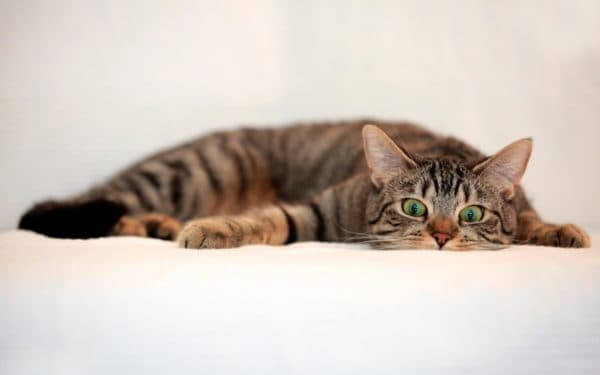
How do you teach a cat? Cat training can be a fun and rewarding activity for the animal and its owner, but it is important to…
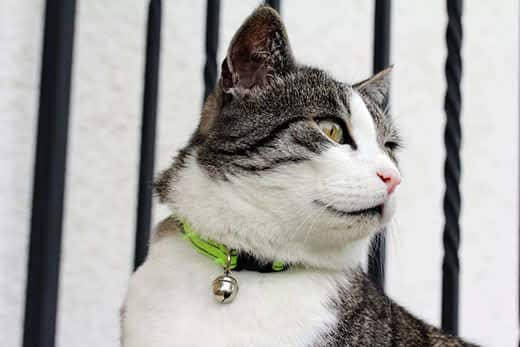
Which cats are the smartest? Do you want to know which cats are the smartest? These 12 breeds are sure to amaze you with their extraordinary…
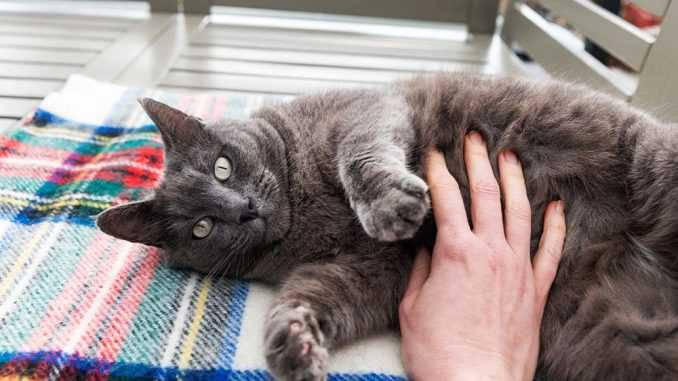
Why are cats afraid of water? Most cats avoid water at all costs. We have studied this question and are ready to tell you 6 …
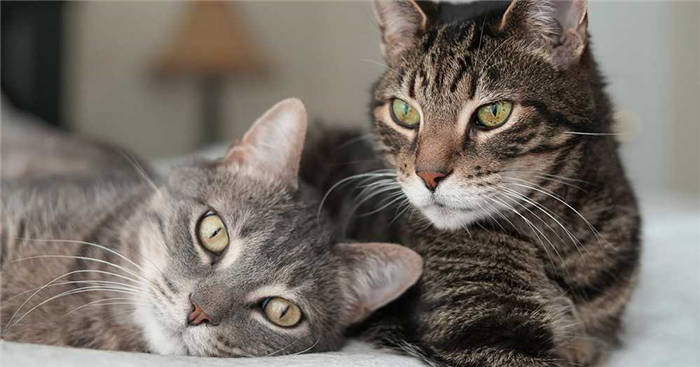
Why does a cat give birth to 2 kittens? Is it normal? Every experienced cat owner knows that a cat can give birth to a litter of 4-6 kittens in one pregnancy….
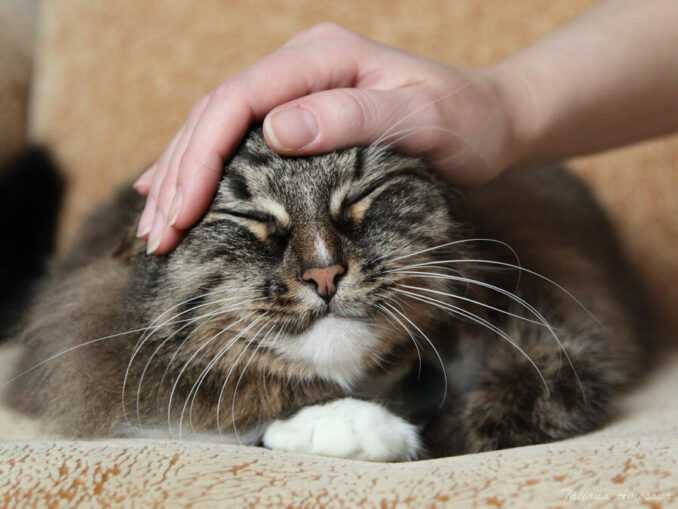
Abyssinian cat Before you get an Abyssinian cat, it is worth carefully studying its character and habits. Representatives of this breed …
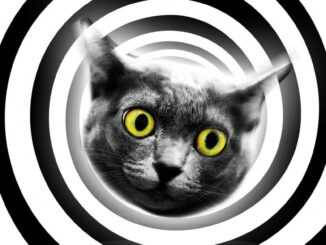
The stomach is bubbling and vomiting has opened
Such a situation indicates possible problems with the stomach and with the process of bile excretion. Also with this, some indirect signs indicate serious disorders of the cat's gastrointestinal tract, namely:
Thus, the cat tends to spend most of the day sleeping, his condition worsens, and each meal causes stomach churning and vomiting.
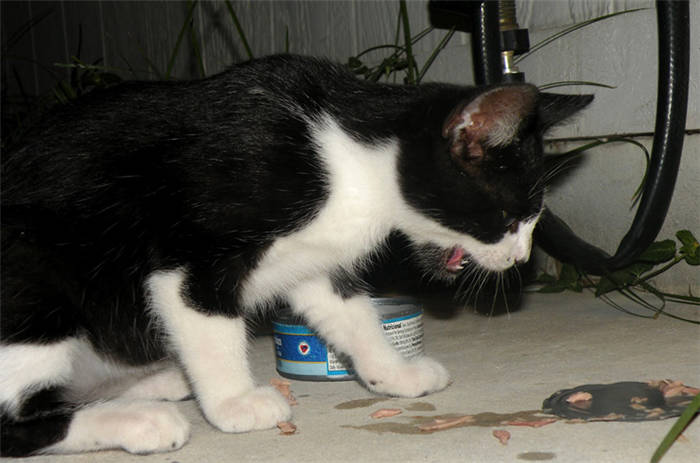
What to do in this situation? The only thing that can help in this case only a visit to the veterinarianA visit to the veterinarian will help, who will correctly prescribe a treatment regimen based on examination and tests. If the situation (stomach rumbling and vomiting) is one-time, you can give your pet half a tablet of "Mezim", one day to keep him on a diet (water, kefir, oatmeal in water).
Stomach rumbling and disturbed stools
Such symptoms indicate that the intestines are disturbed due to improper nutrition. Moreover, bubbling is observed in the lower part of the abdomen, closer to the intestines. The stools are liquid, any other symptoms are absent.
What to do in this situation? Reconsider the cat's diet. Completely exclude from the cat's diet foods that are "hard" on the stomach. This includes raw and fried meat, fatty sour cream, poor quality dry food. For the cat's gastrointestinal tract to normalize, it is necessary to follow a gentle diet (broth, cottage cheese, light porridge with water, quality diet food). As a rule, the symptoms disappear on their own in 3-4 days.
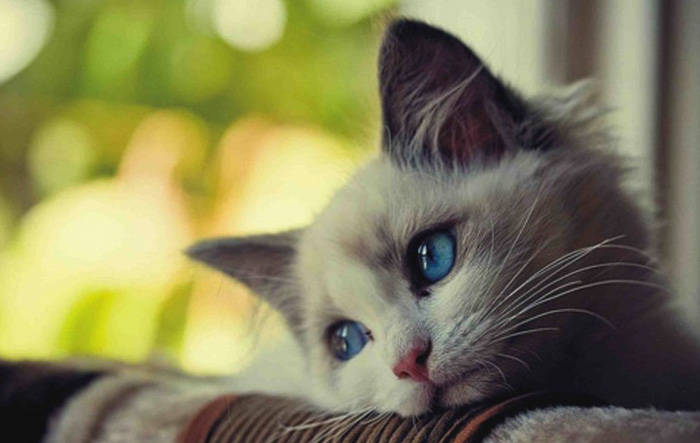
Relationship between thirst and tummy rumbling
But it's not just hunger alone! Sometimes the sounds your pet makes indicate a A thirsty feeling, or that he has already quenched his thirst by being quite thirsty.. What do you mean by that? The fact is that the intestines will make all the same noises as if the cat were hungry when very thirsty. The lumen of the gastrointestinal organs in such cases is absolutely free, and therefore nothing interferes with the gas.
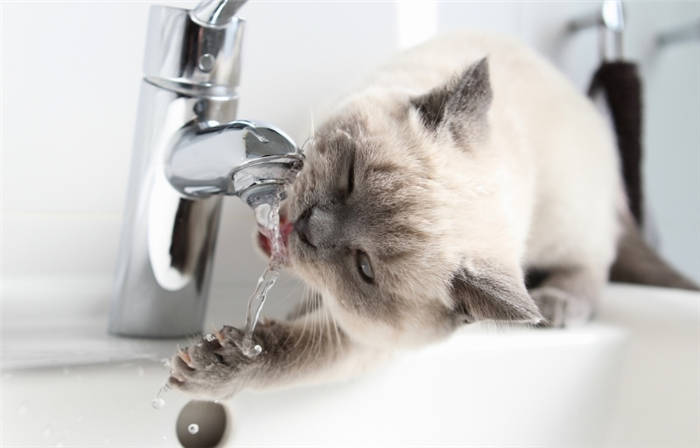
But when your pet is well-drunk, water will flow through its semi-empty bowels, pushing forward all the same gas bubbles. Sounds of mumbling are interspersed with melodious murmuring. No need to worry: if your pet is acting like a river stream, the phenomenon is not a threat to his life and health.
But it's still worth giving a couple of warnings. Firstly, if your cat is really hungry and then he ate something well, you do not need to bother him in any way during this period. Yes, it's extremely rare that a cat will get sick to its stomach, but you shouldn't rule it out. Cats, though being rather playful creatures, are more "reasonable" than dogs, therefore they won't jump after eating like squirrels. The same applies to quenching thirst. If your pet has drunk a bowl of water after a walk on the street it shouldn't be raced along sprinting routes. No good will come of it.
Sharp peristaltic contractions of the intestines and, accordingly, loud and "ominous" sounds, can be caused by the same water. Only cold. The reason for this is that the cold liquid irritates the mucous membranes of the intestine, which causes the latter to contract intensively. Because of this, air bubbles move faster through the lumen of the gastrointestinal organs, and therefore there are sharp and clearly distinguishable sounds. Besides the "special effects", this phenomenon is fraught with diarrhea and abdominal pain, since the gas is strongly distending the walls of the intestines. In severe cases, cats fall down, roll on the floor, meow or wheeze loudly and hoarsely.
Meteorism
We undeservedly forget one of the most important causes of stomach grumbling. It is "normal" flatulence. Almost everyone is familiar with its manifestations, creating a lot of problems in everyday life. In addition to the "growls" and unpleasant smell coming from the cat, flatulence is fraught with abdominal pain and even, in particularly serious cases, can lead to intestinal congestion. Moreover, sometimes the cat's intestines are so bloated with gas that the cat has difficulty breathing, drools, and has other symptoms that indicate an obstruction of the pulmonary blood supply.
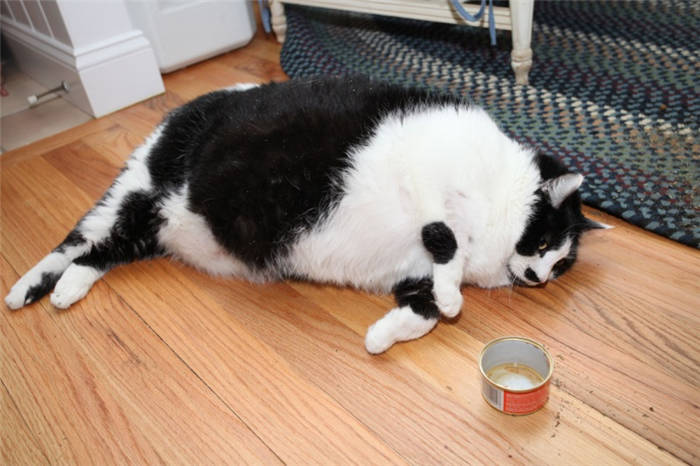
What causes this pathology? The first cause is the gluttony we've already mentioned.. When a cat eats too much, the food in his digestive tract simply does not have time to digest. This leads to the development of semidigested food masses rotting processes, accompanied by the release of large amounts of gas and toxins. Intoxication develops, and the pet vomits. But the cause of flatulence is still gas. Of course, gas is only the least of all possible problems in such situations. The cat can either die, or "get" severe food poisoning. If he is lucky, he will get "only" severe diarrhea.
But what about pets who have never been noticed for gluttony, but they constantly develop flatulence? It may not be the cat's fault that he likes to eat too much, but the It's the food he eats that's to blame. For one thing, it may simply be of poor quality.. If this is the case, the food starts to rot in the gastrointestinal tract cavity and gas is released.
Foods – healthy and not too
But cats are picky eaters, so they won't eat blatantly rotten food (unlike dogs, by the way). So why does the cat's stomach rumble a lot and it regularly "spoils the air"? It may be due to a food intolerance of some components of the food, or the cat's body in principle can not digest this or that food. A perfect example is milk. Historically it is considered almost the best treat for cats, but this is far from it.






